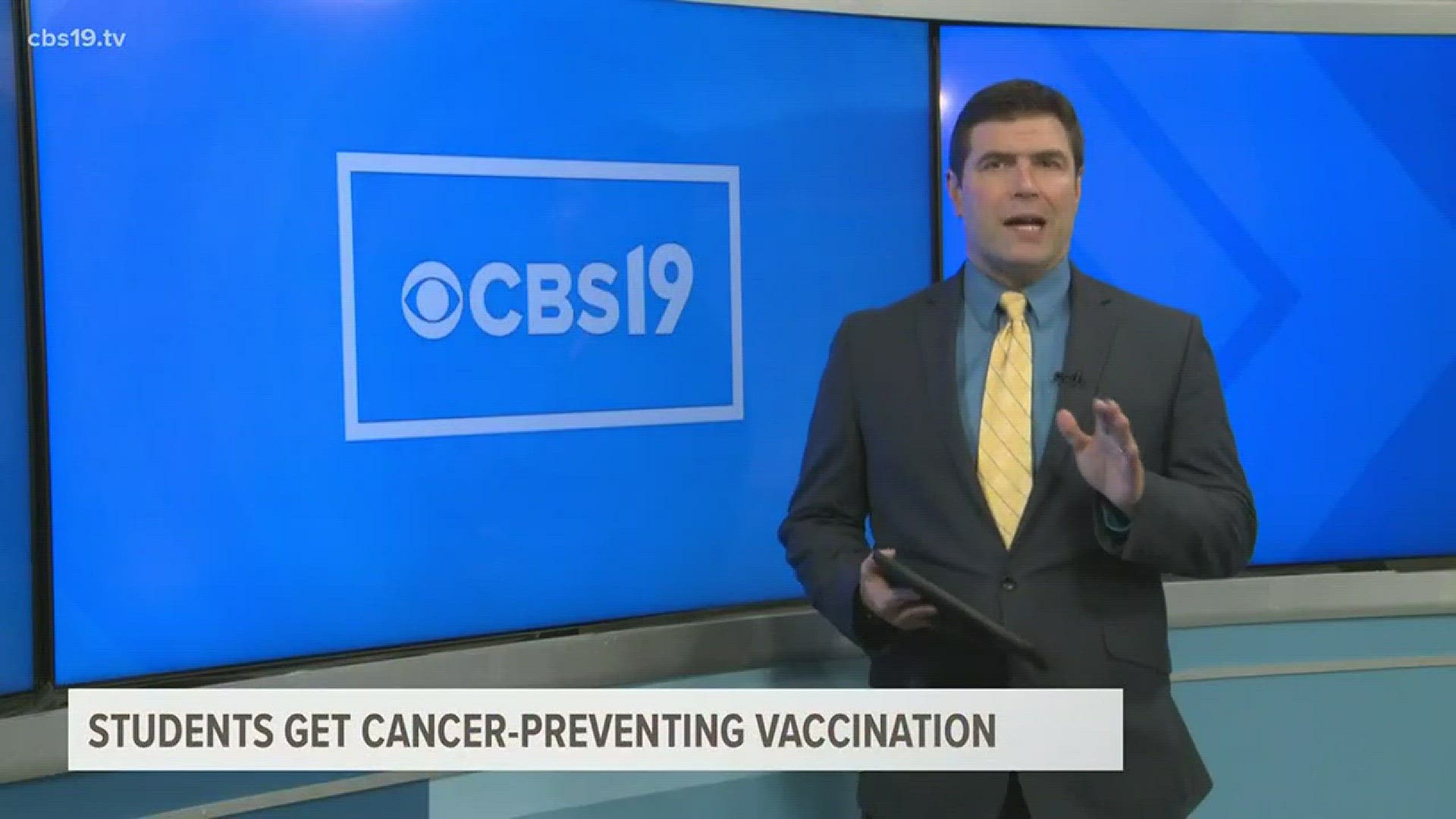TYLER — Roughly 80% of people nationwide will contract the human papillomavirus, or HPV in their lifetime, making it the most common sexually transmitted infection.
Thursday, UT Tyler’s School of Nursing and the Fisch College of Pharmacy partnered with the Texas Medical Association and NetHealth to provide college students with free vaccinations.
In total, 21 students received the vaccination during the clinic. Including in that number was freshman, Vanessa Martinez.
"Just being proactive and like, preventing anything from happen, me from getting HPV if I didn't get the vaccine," says Martinez.
HPV is typically spread through sexual contact. When introduced in 2006, the, then, controversial vaccine for HPV was only recommended for girls and young women, but that has since changed.
"I didn't know much about the vaccination,” says UT Tyler student, JC Garcia. “At first, I thought it was just for females, but then, they told me males can get it, as well."
The vaccination can now be administered to boys and girls as young as nine years old to adults age 26. The CDC recommends that most are vaccinated at age 11 or 12.
"If you get the vaccine before the age of 15, you only need two of these shots,” says Dr. Li-Yu Mitchell, MD. “Those 15 and older, up until age 26, actually need a series of three."
Dr. Mitchell is a member of the Texas Medical Association, which partnered with UT Tyler for Thursday’s clinic.
"You can have outward manifestations of HPV, genital warts and so forth. So, there are signs, but largely, it's silent."
Thirteen of the more than 120 strains of HPV can cause cancer, including 99% of all cervical cancers. According to the CDC, Texas saw about 2800 cases of HPV-associated cancers in the five-year period between 2009 and 2013.
A recent study by the University of Texas System Office of Health Affairs shows the HPV vaccination rate in Texas has fallen behind the nation's average. Less than half of Texas adolescents and just one-third of young adults received the shot in 2016.
"In Texas and East Texas, we have very, very low HPV vaccine completion rates,” says Dr. Mitchell, MD. “We want to catch the college-aged students who may have missed getting these shots as adolescents."
Older teens and young adults who are sexually active can still benefit from the vaccination, even though doctors recommend the shots be given earlier. Teenagers and people in their twenties make up the majority of the 14 million new HPV infections each year.

